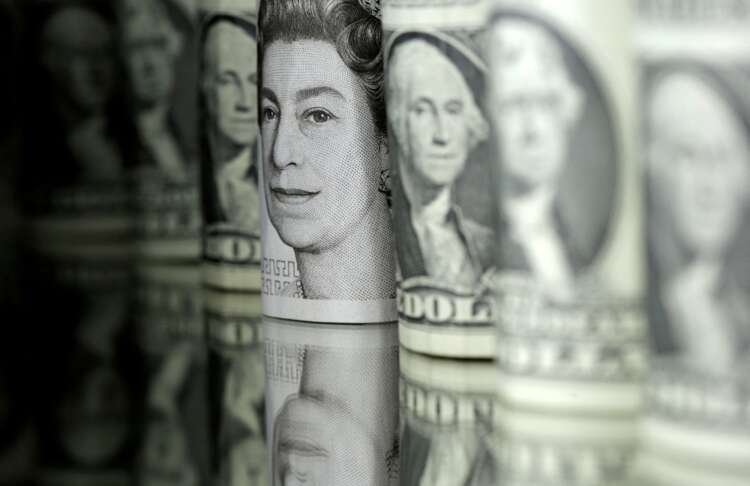Sterling hits six-week high as Sunak mulls delay to Oct. 31 budget plan
Published by Jessica Weisman-Pitts
Posted on October 26, 2022
3 min readLast updated: February 3, 2026

Published by Jessica Weisman-Pitts
Posted on October 26, 2022
3 min readLast updated: February 3, 2026

By Lucy Raitano
LONDON (Reuters) – Sterling soared to six-week highs on Wednesday, as Britain’s new Prime Minister Rishi Sunak holds his first cabinet meeting amid reports he could delay the announcement of a plan to repair the country’s public finances.
Sunak took power on Tuesday with a promise to fix the mistakes of his predecessor and stabilise the economy, warning Britain faced a “profound economic crisis”.
Foreign minister James Cleverly said on Wednesday the government’s fiscal plan, scheduled for Oct. 31 and hotly anticipated by markets, could be delayed, suggesting a little more time might be needed to spell out the details.
The pound was last up 1.16% against the dollar at $1.1601, and was 0.41% higher versus the euro at 86.500 pence per euro.
“Things are certainly starting to look a lot more constructive for the pound,” said Michael Brown, head of market intelligence at Caxton.
“PM Sunak coming into office appears to have restored fiscal credibility with the market, removing a large chunk of the risk premium that was previously associated with UK assets,” said Brown.
Former prime minister Liz Truss resigned last week following major U-turns on her fiscal plan, which had sent UK gilt markets into chaos and saw the value of the pound plummet to a record low of $1.0327 against the dollar on Sept. 26.
The currency has regained almost 13% in value since then, but is still 14% down so far this year against the dollar.
According to Caxton’s Brown, a broad softening in the dollar as the market anticipates a more dovish Federal Reserve next week should continue to underpin the pound for now.
For Chris Turner, head of FX Strategy at ING, $1.1500 is a big level for sterling, and a sustained break above that level could see the correction extend to $1.1750.
“But such a correction would more likely be driven by a global re-assessment of risk ($ negative) than a further re-rating of UK prospects,” Turner wrote in a note.
Despite the pound’s recovery, Britain’s economic outlook still presents a major headwind. Data last week showed inflation rising back to a 40-year high in a new blow for households grappling with a cost-of-living crisis and compounding the challenge faced by the Bank of England (BoE), which is tasked with bringing inflation back to its 2% target.
On Wednesday, investors were pricing in a 63% chance of a 75 basis point hike at the next BoE meeting scheduled for Nov 3, and a 37% chance of a full percentage point increase – a move that was previously fully priced in after Truss’s mini-budget announcement in late September.
(Reporting by Lucy Raitano; Editing by Mark Potter)
Inflation is the rate at which the general level of prices for goods and services rises, eroding purchasing power. It is typically measured annually and can impact economic stability.
The Bank of England is the central bank of the United Kingdom, responsible for issuing currency, maintaining monetary stability, and overseeing the financial system.
Foreign exchange, or forex, refers to the global marketplace for trading national currencies against one another. It is essential for international trade and investment.
Currency risk is the potential for financial loss due to fluctuations in exchange rates. It affects businesses and investors engaged in international transactions.
Explore more articles in the Trading category











